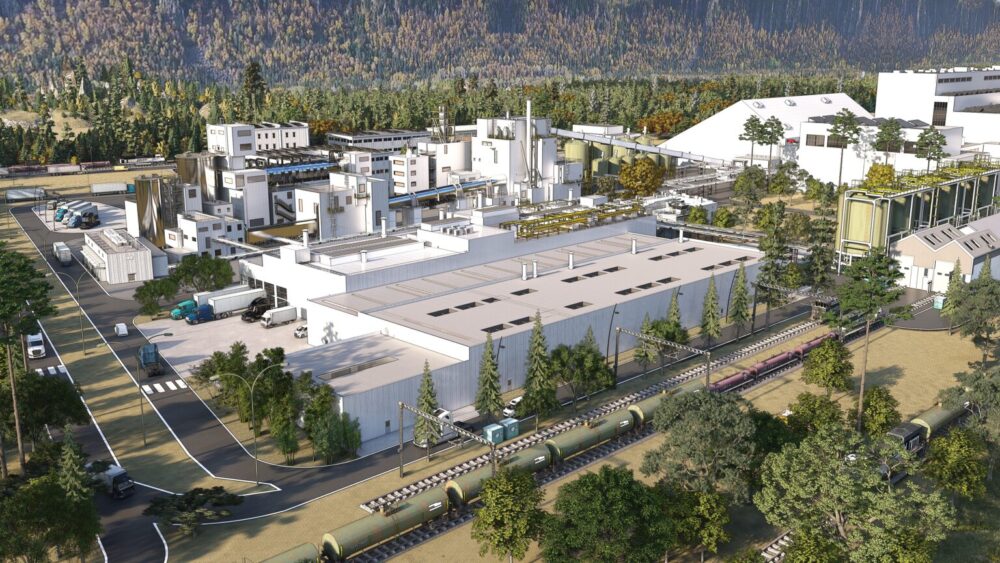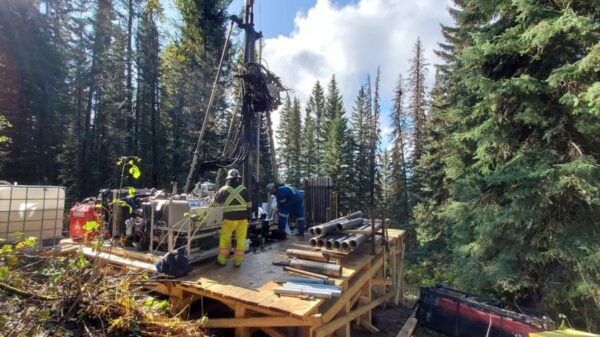Rock Tech Lithium (CVE: RCK) (OTCMKTS: RCKTF) (FRA: RJIB) received CAD$388,074 in funding from Ontario’s Critical Minerals Innovation Fund (CMIF) to develop an ore sorting process for low-grade spodumene ores.
The initiative intends to explore new economic and environmental value from lithium deposits at the company’s deposits at its Georgia Lake site close to Beardmore, Ontario, according to a Monday release.
In conjunction with partners, Queen’s University and energy equipment firm, Stark Technologies, the funding will aid in research and pilot testing of new ore sorting solutions looking to improve lithium recovery rates from low-grade ores.
“We’re proud to have the support of the Government of Ontario through the Critical Minerals Innovation Fund,” said Mirco Wojnarowicz, chief executive officer at Rock Tech.
“This project brings together academia, technology, and industry to solve one of the key challenges in lithium production – making lower-grade resources viable.”
Queen’s University will conduct the research, while Stark Technologies provides advanced sorting technology and expertise. Additionally, Rock Tech supplies ore samples and oversees project progress. Rock Tech guides the path to commercialization. This collaboration ensures clear roles and efficient advancement.
Stephen Lecce, Minister of Energy and Mines, said Ontario is advancing as a global leader in critical minerals. The Critical Minerals Innovation Fund drives this momentum. He emphasized that the project with Rock Tech, Queen’s University, and Stark Technologies exemplifies smart collaboration.
This partnership moves critical minerals from concept to production. Additionally, it strengthens supply chains, creates local jobs, and promotes clean energy progress. Lecce stated this approach leads Ontario to success and builds a stronger province for future generations.
Read more: Codelco and SQM get regulatory approval for lithium joint venture in Chile
Read more: Environment nonprofits go after Hell’s Kitchen Lithium Project in Salton Sea
Lithium helps reduce greenhouse gas emissions
Ontario launched the fund to support research, development, and commercialization of critical mineral technologies.
The fund began with CAD$5 million and received an additional CAD$15 million in the 2024 budget. It reimburses 50 per cent of eligible costs, up to CAD$500,000 per project. The program backs private-sector partnerships with academic and R&D institutions to strengthen Ontario’s battery, electric vehicle, exploration, extraction, processing, and recycling supply chains.
Lithium plays a crucial role in modern technology, especially in rechargeable batteries. Lithium-ion batteries power many devices, including smartphones, laptops, and electric vehicles.
Additionally, lithium’s high energy density allows batteries to store more power in a smaller space. This feature supports the growing demand for portable and efficient energy storage.
Furthermore, lithium helps reduce greenhouse gas emissions by enabling cleaner transportation options. The metal also contributes to renewable energy systems by storing solar and wind power for later use. Because of these factors, lithium has become vital to the global shift toward sustainable energy.
Its supply influences industries and national security due to high demand and limited sources. Therefore, countries and companies invest heavily in lithium exploration and production to secure stable access.
“The Critical Minerals Processing Lab at Queen’s University is pleased to collaborate with Rock Tech Lithium on this important initiative to advance the Georgia Lake project.” said Charlotte Gibson, Assistant Professor and Associate Head, Robert M. Buchan Department of Mining at Queen’s University.
“We look forward to strengthening our ongoing partnership, combining fundamental and applied research to enhance the industrial processing of low-grade lithium ores.”
This project demonstrates how public-private partnerships drive innovation and create long-term value within Ontario’s and Canada’s clean energy supply chain.
.













